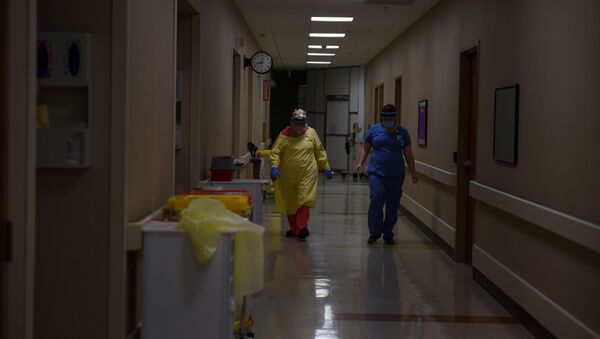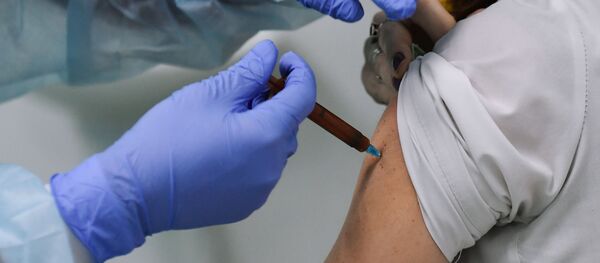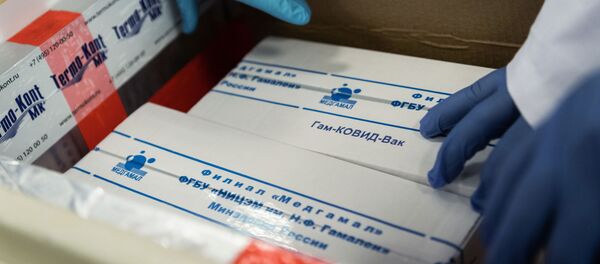A group of people who received a half-dose first followed by a full dose in the AstraZeneca/Oxford coronavirus vaccine trials is too small to make conclusions about this dosing regimen’s efficacy, the World Health Organization's (WHO) chief scientist, Dr Soumya Swaminathan, said on Friday.
On Monday, AstraZeneca released interim results of its candidate vaccine showing two different levels of efficacy depending on the dosing regimen. Efficacy in patients administered two full doses one month apart was 62 percent, while in those administered a half-dose and then a full dose, it reached 90 percent. The company later admitted that the regimen with a higher efficacy had actually been a result of a dosing mistake.
"It appears that less than 3,000 people were given the schedule with the half-dose followed by the full dose of the vaccine. And we also understand that those people were all under 55, so it didn't have anyone over 55 in that group, whereas the other group of about 8,000+ people were given the full dose and the full dose. Actually, there were larger numbers and it also included different age groups. So it's very hard to compare these two groups and I would say the numbers are still small to really come to any definitive conclusions," Swaminathan told a virtual press briefing.
The WHO’s top immunization expert, Katherine O’Brien, agreed that the global health agency needs to see more data than a press release and "have a chance to ask the questions that are needed."
"There is, first of all, only limited amount that can be said in a press release and, secondly, it really needs to be reviewed in terms of the data and questions asked about the data that come up in the course of the review. So it's difficult to weigh in on this," O'Brien, the chief of the department of immunization, vaccines and biologicals, said.
According to the expert, "from what we understand about the press release, there is certainly something interesting that has been observed, but there are many reasons that could underlie the differences that were observed."
The WHO therefore needs more information, including evaluations of the immune response in the trial, the expert added, concluding that "it's too early for us to say anything about what we make of the data and what is needed next."
After the dosing regimen error was revealed, CEO Pascal Soriot told Bloomberg that AstraZeneca would need to run an additional clinical trial to validate "what looks like a better efficacy" of a lower dosage.










